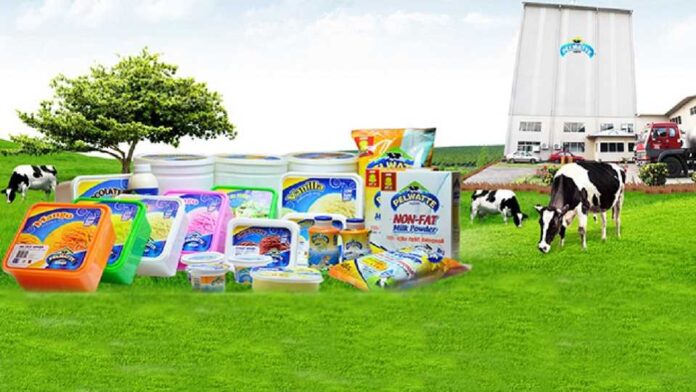The Government is embarking on a strategic plan on revitalising the dairy industry with initiatives aimed at enhancing productivity, improving milk value chains, and supporting local farmers while encouraging private sector investments.
Key efforts include a new project utilising World Bank funding to boost dairy farm productivity in specific districts, and to transform state-owned dairy companies into efficient and market-driven enterprises.
A project funded by the World Bank is underway to enhance dairy farm productivity in key districts like Anuradhapura, Matale, and Galle ensuring a more efficient and sustainable dairy industry.
This strategic plan is aimed at transforming MILCO and the National Livestock Development Board into efficient and productive enterprises, according to President’s Office Sri Lanka.
A Milk Development Fund will be set up to support dairy farmers by improving their livelihoods and farming standards
Sri Lankan private sector has also stepped in to develop the dairy industry, aiming to boost milk production and meet local demand with the encouragement of the government through initiatives like providing state land to private companies for commercial dairy farms and supporting local dairy farmers with training and insurance.
In a far reaching move to improve the dairy industry, Pelwatte Dairy Industries Ltd, Sri Lanka’s largest milk collector and a key player in the dairy sector is expanding its production capacity with a Rs.3.1 billion investment in a state-of-the-art Greenfield dairy processing facility in Ibbagamuwa, Kurunegala.
Founder Chairman of Pelwatte Dairy Industries, Master Divers, and President of Mawbima Lanka Foundation Ariyaseela Wickramanayake, said that the new factory is being developed as an environmentally sustainable project featuring modern
At initial capacity, the new plant will process 50,000 to 80,000 litres of milk daily, sourced directly from farmers across the Northwestern Province and the full capacity will be set at 300,000 litres. The factory is scheduled for completion by June 2026.
The company currently exports ice cream and butter to the Maldives and is preparing to expand into other international markets, including Seychelles and Mauritius. It also exports milk powder mainly to China and a few African countries
He expressed the belief that Sri Lanka could achieve self-sufficient dairy and sugar production as well as major agricultural crops with the encouragement of the government.
Mr. Wickramanyake disclosed that he was instrumental in initiating the concept of Hambantota port which is now becoming a regional hub for the East-West maritime traffic
He noted that he realised the importance of a seaport in Hambantota in the seventies, and did several studies on it. In 1997, he wrote a book on why it has to be Hambantota a strategic location, he added. .
Agriculture was the success of Sri Lanka‘s past and it is the future too” he said pointing out that that farming practices have sustained communities in the past, also hold the key to a sustainable and prosperous future prospects
